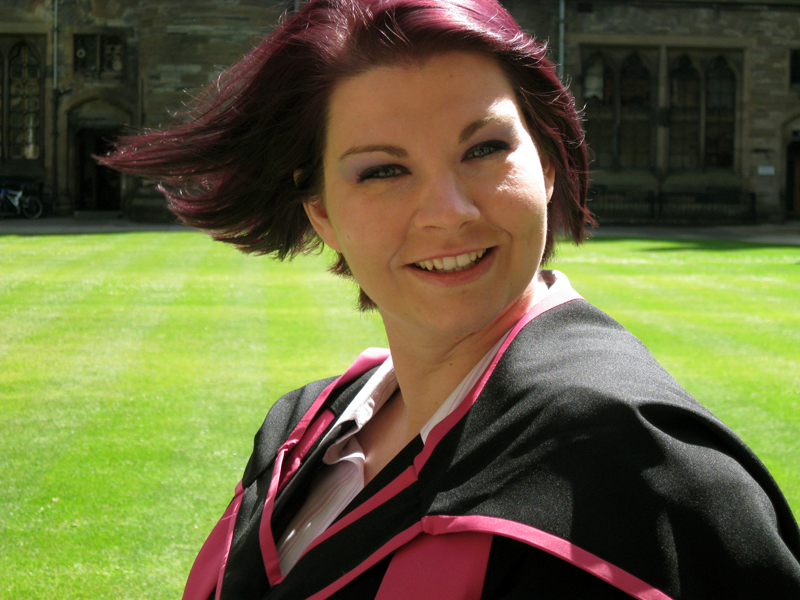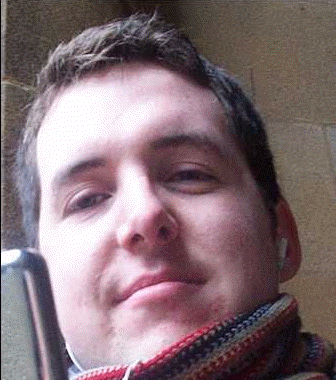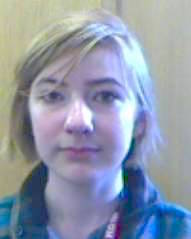
Web site logical path: [www.psy.gla.ac.uk] [~steve] [this page] [PhD advice] [distance PhD?] [PhD by publication]
(Postgrads, graduate students, wannabes, ... )
This is an index page to people who were or are or might become research students with me in the area of education and perhaps educational technology.
First though I'll just mention my page on Midge McLundie whose PhD wasn't about education, but I want to mention her anyway.
And also mention that I have a page of pointers to low level resources that could help a PhD student in the middle of struggling.

| |
| Marianne Patera |

| |
| Nick Bowskill |

| |
| Joe Maguire |
As an undergraduate he introduced me to podcasting, got it going in the university, and we published on it. He has since done a PhD with Karen Renaud on picture authentication and usable security. He's the best person I know for talking with about current and evolving technology, and what it could imply for learning and universities.

| |
| Matt Barr |
He has recently (Feb. 2016) achieved his chief thesis aim of showing significant educational benefits from playing video games. He recently finished a randomised controlled experiment which shows that it is possible to use video games to increase students' scores on certain graduate attributes (adaptability, resourcefulness, and communication skill). This is a rare success in the field at showing that sustained play of some commercial games can lead to achieving valued educational outcomes. (The statistics are impressive: p<0.013 for one measure, and for two others p<0.005 i.e. less than 1 in 200 chance of the effects being accidental; and effect sizes (Cohen's d) in the range 0.95 - 1.15.)
This work has now been published:
Barr, M. (2017) "Video games can develop graduate skills in higher education
students: A randomised trial" Computers & Education vol.113 pp.86-97.
doi:10.1016/j.compedu.2017.05.016
Additionally, he now has a book addressing this work from another angle:
Barr, M. (2019) "Graduate Skills and Game-Based Learning".


| |
| Sarah Honeychurch |
Here is a 2014 paper by her related to her best-ever learning experience: Key Pedagogic Thinkers - Dave Cormier
Her PhD thesis:
The emergence of participatory learning, authenticity, serendipity
and creative playfulness (2021).
Among other things, it offers a very different view of learning which
hardly considers teaching at all, nor a fixed curriculum;
but one which is based on a self-governing community of learners which
sets its own learning goals, and its own learning activities (and selects its
own IT platforms rather than having them provided or dictated by the course
organiser).
(I don't know why it isn't in the university library yet.)



| |
| Claire McCallum |
Claire was an interdisciplinary PhD student in her final year, working across the Institute of Health and Wellbeing and School of Computing Science at the University of Glasgow. Her research explores rapid experimental designs for evaluating the effectiveness of physical activity apps and wearables, including the automation of effectiveness trials using online app stores. Claire's recent work also seeks to understand the practical challenges involved in evaluating "mHealth" technologies from the perspectives of health, human computer interaction and data scientists, and industry-based app developers.


| |
| Lovisa Sundin |
Some of her visual stuff:
Web site logical path:
[www.psy.gla.ac.uk]
[~steve]
[this page]
[Top of this page]